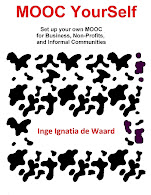MOOCs and the 'sound' of higher education
By Sandra Peter. AS Australian universities embrace free online courses and partner with world leading massive open online course providers such as Coursera and edX, they are not only changing how education is delivered, but potentially challenging the very meaning of, and what constitutes, learning and an education.
The recent report from the University of Sydney’s United States Studies Centre describes MOOC platforms as the “iTunes of higher education” (with laptops and tablets as the iPods for learning), revolutionising how education is developed and made available to learners.
This analogy is useful for considering a potentially more fundamental shift in the meaning of learning and education, akin to the one iTunes as a platform together with iPods as devices set off in music: the way we thought of ‘good music’. Whereas in the 80s and 90s music was about the quality of the sound – the more expensive the equipment (speakers, amplifiers, cables etc), the better the sound – in 2001 it became accessibility, convenience and choice (iTunes and the iPod). Good music became synonymous with accessible music. More...










/https%3A%2F%2Fprofilepics.canalblog.com%2Fprofilepics%2F1%2F0%2F1076071.jpg)